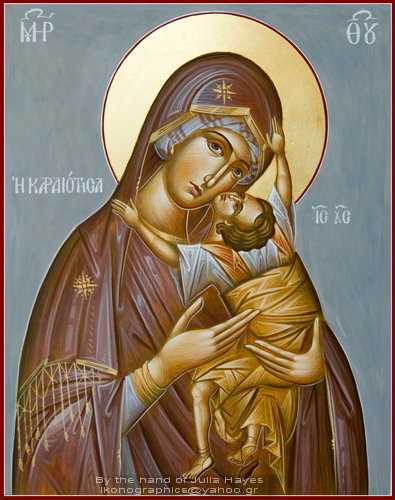Our Biblical Blog /'Examined Life'
|
SAINT AUGUSTINE'S, GRAHAME PARK
 Being Embraced by God (18 OT A) Last week, we could observe something very interesting in our readings of the Lectio Divina. We found it difficult to relate to the ongoing plots and wars of the kings of Israel. We particularly found it with unease to relate to wars and cruelty. We grasped that at the heart of these events was the betrayal of the God of the Covenant. This Sunday (just as the past few ones) the contrast is enormous with these ‘week-day wrestling’ with our heavy texts. All of our readings can be summed up in terms of ‘being embraced by God’. ‘O God, come to my assistance; O Lord, make haste to help me!’ (entrance antihpon). ‘Draw near to your servants, and answer their prayers with unceasing kindness’ (Collect). ‘Oh, come to the water all you who are thirsty; though you have no money, come! Buy corn without money, and eat, and at no cost, wine and milk.’ (Isaiah 55:1-3) So let us focus on this contrast between the ‘real world of pain’ of our week-day readings (1, 2 Chronicles) and the joy of being embraced by God, and our clinging to this embracing God. During the unfolding of the struggles of the prophets, gradually a conclusion, a kind of summary occurred to me. Actually, there is a profound connection with our age. The historical dramas are always there in the life of the faithful. History always comes upon us as crisis. The people suffer, things happen to families and individuals which they can’t prevent. And all in the midst of it God, before he comes to rescue us, asks us to return to him. That we listen to him, that we first embrace his saving words. We could see in those readings that the stake is high. If the people don’t listen, their faith, then their historical existence will be dispersed. They will disappear in the senseless karma of history. Our age, today with the global epidemic of Covid 19 is exactly the same historical situation. It raises the same challenges to faith. First, we should repent and return to God. First, we should listen to his life-giving words. And it is these challenging moment of crisis when we should prove the most faithful. Our observance, our moral and financial support to our community is more timing than ever before. Today’s Gospel give us a vital support. Saint Paul tells us, as an encouragement, that ‘nothing can come between us and the love of Christ. Even if we are troubled or worried, or being persecuted.’ Nothing can prevent us to live daily in the love of Christ. In his joy. Via his tenderness. Jesus shows us that sad news don’t turn off God’s loving embrace and sustenance. ‘When Jesus received the news of John the Baptist’s death he withdrew by boat to a lonely place where they could be by themselves.’ Yet, he continually shares that embrace of love which his Father offers him. So the next moment he shares with them his food. ‘And breaking the loaves handed them to his disciples who gave them to to crowds. They all eat as much they wanted.’ Pope Francis sums up this Biblical dynamic of suffering and being lifted up as God’s response to our turn to him in faithfulness. ‘Friendship with Jesus cannot be broken. He never leaves us, even though at times it appears that eh keeps silent. When we need him, he makes himself known to us (Jer 29:14); he remains at our side wherever we go (Jos 1:9). He never breaks his covenant. He simply asks that we not abandon him: “Abide in me” (Jn 15:4). But even if we stray from him, “he remains faithful, for he cannot deny himself” (2 Tim:13).’ Finally, as a visual illustration, let us contemplate our points about ‘pain in history’ and God’s never-ending embrace in the icon of the Loving Tenderness. The mystery of tenderness is beyond words. The shadow on the face of Mary is the shadow of his son’s coming suffering. Symbolically, the Mother of All is worried about our present sufferings. Yet, we can see God’s loving, over-arching embrace to console His mother, and us. When human and divine love are united (our turn to God in faith and love), it is a powerful defence against all the odds of history and personal life. God’s joy, God’s loving embrace to be extended to others by us can never be broken. In our Eucharist, let us rejoice over this fact. 02.08.2020
0 Comments
Leave a Reply. |
Soliloquy
These are verbal Icons, expressions of how the world is seen from Saint Augustine's.. Archives
June 2023
Categories |
||||||||||||||||||||||||||||||||||||
Proudly powered by Weebly
 RSS Feed
RSS Feed